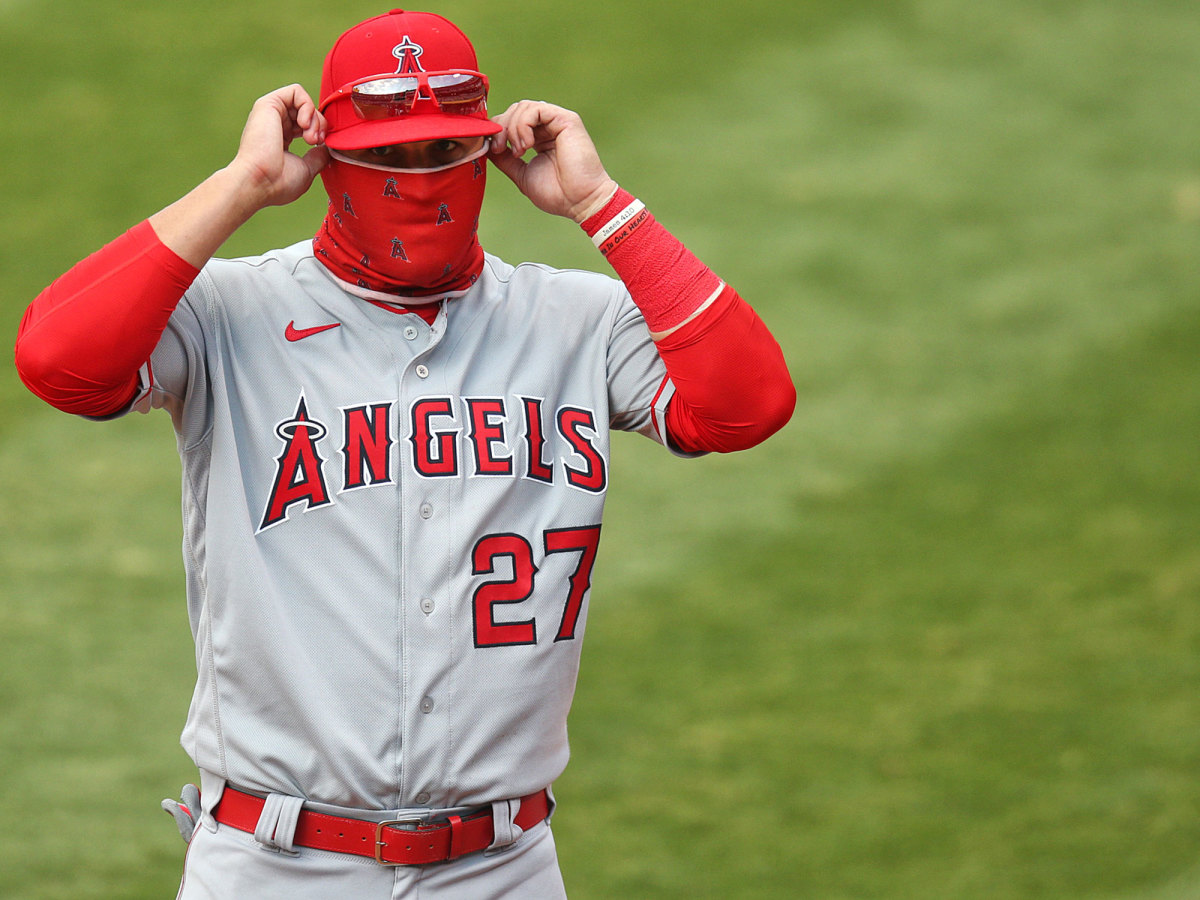MLB's Worst Nightmare Is Here. They Should Have Seen It Coming
And here we have it, the least surprising possible outcome of MLB’s decision to fly some 1,500 people around the country, from one coronavirus hotspot to another, buttressed by a hope and a prayer and instructions not to spit, in service of playing baseball: They have to stop playing baseball.
Four Marlins players had tested positive for COVID-19 by Sunday afternoon. As of Monday morning, that count was reportedly at least 11 players and two coaches. Miami’s scheduled Monday night home opener against the Orioles has been postponed.
But the Marlins played three games against the Phillies this weekend. Last week, they played two exhibition games in Atlanta against the Braves. It’s impossible to know how far the infected droplets sprayed. Both of the Braves’ primary catchers, Tyler Flowers and Travis d’Arnaud, missed the weekend series against the Mets after they exhibited COVID-19 symptoms. The Phillies players and coaches are waiting on test results; The Athletic reported that their entire visiting clubhouse staff has been quarantined. The Yankees-Phillies game on Monday has been postponed. The season is four days old.
This is a catastrophe. It’s also exactly what epidemiologists have been predicting for weeks.
Owners and players agreed this spring to eschew a “bubble” system—players didn’t want to leave their families and owners didn’t want to cede the revenue that comes from stadium sponsorships—and instead use the more dangerous plan of traveling from city to city. The parties also agreed to test players only every other day, returning results within 48 hours, which means a player could be carrying—and spreading—the virus for nearly four days before he knows about it.

(And MLB can’t even guarantee that insufficient frequency. Within the first few days of summer camp, at least four teams had to cancel workouts because they did not have test results back. The Angels had to delay practice because testers never showed up at all.)
Earlier this month, the league distributed an operations manual of more than 100 pages that laid out everything from the mechanics of placing a player on the injured list to the best way to use the bathroom on the team plane. But it does not address what level of COVID-19 spread would cancel a game or the season.
The Marlins players met before the game on Sunday to discuss their options. Miami manager Don Mattingly said that his team “never really considered not playing.”
Why did athletes, rather than infectious disease specialists, get to make that decision? Because there are no adults in the room. There never have been. Once the owners and the players stopped squabbling over the details and agreed to play, both sides had too much financial incentive to force through a season. Just look at the way the league and the union trumpet their COVID-19 test results every week, announcing the percentage of positive samples, rather than of people, tested. Those numbers are a sham. If someone tests negative three times and then positive the fourth, the first three aren’t a success story.
Commissioner Rob Manfred has not conducted an open interview with the press since February. His most recent media appearance came on Thursday, during the Yankees-Nationals season opener, when he smiled on ESPN while Alex Rodriguez, who is currently trying to buy the Mets, told him what a “tremendous job” he’s done.
All this looks even more reckless in a country that will soon eclipse 150,000 COVID-19 deaths. The Blue Jays will play their home games in Buffalo, because the Canadian government does not want people coming into the country from the United States. Meanwhile, Los Angeles and Washington, D.C., both waived for professional sports teams local regulations that would have forced anyone who came into contact with anyone who tested positive to quarantine for 14 days. Over the weekend, while the Marlins were taking two out of three from the Phillies, Florida eclipsed New York as the state with the second-most COVID-19 cases.
League officials are reportedly planning emergency discussions for Monday afternoon. They could have scheduled them a month ago.
